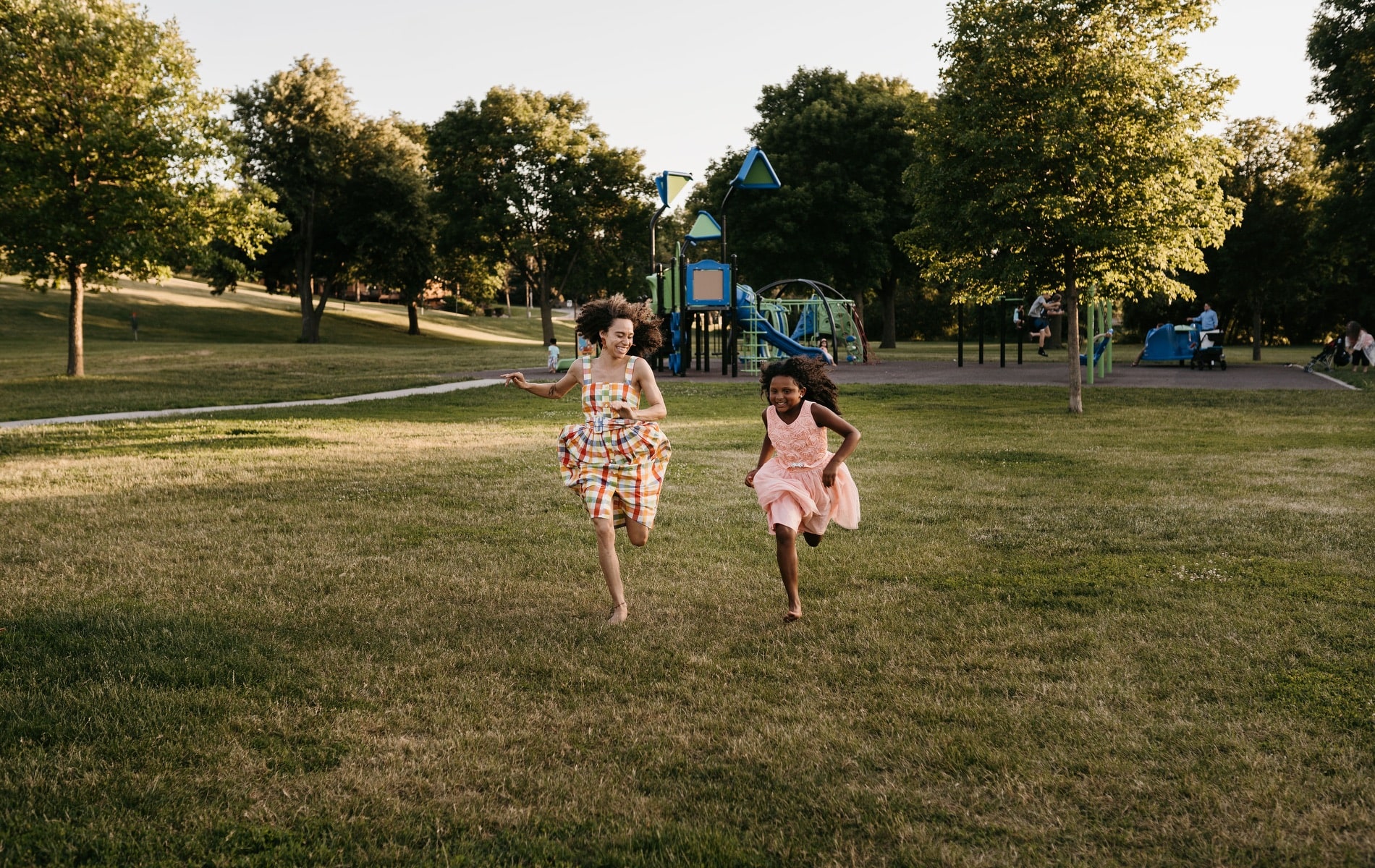
viemagazine-Mar23HERO-1-min
Tori Hope Petersen (left) and one of the children her family has fostered
Finding Faith and Family through Foster Care
Interview by Laurie Crowley
Photography courtesy of Tori Hope Petersen
Tori Hope Petersen’s life is a compelling story of faith, hope, and forgiveness. With the clarity and wisdom of a much older person, her debut memoir, Fostered: One Woman’s Powerful Story of Finding Faith and Family through Foster Care, reveals a firsthand account of life in the foster care system. From the time she was three years old until she “aged out” at eighteen, she was shuffled to multiple foster homes to escape an abusive mother. Those homes were often less than ideal, but with an incredible faith in God and the guidance and kindness of people in her path, she was able to beat the odds. With strong academics and as a five-time state champion in track, she earned a full college scholarship. She is not yet thirty and already a wife, a mom, a foster mom, a sought-after public speaker, Mrs. Universe 2022, and a best-selling author.
She continues to tell her story as she builds a community for those who have experienced abuse. Petersen was kind enough to answer a few questions for VIE. I encourage everyone to read her memoir. Her generous spirit of love and forgiveness is on display and a reminder for us all to walk in kindness.
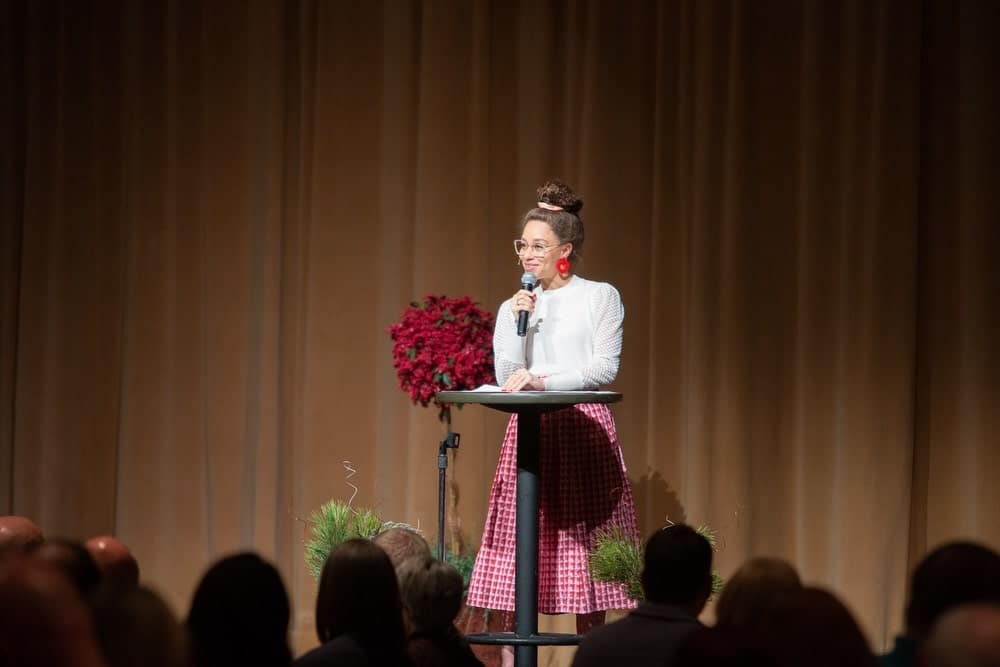
Tori Hope Petersen is a speaker, author, Miss Universe winner, and former college athlete who grew up in the foster care system. She now educates others about her experience as a child and a foster parent.
VIE: When did you decide it was time to tell your story?
Tori Hope Petersen: Throughout college, I shared pieces of my story through social media. I was even given a few opportunities to speak. The more I shared, the more people came to me and shared their stories. One time someone messaged me and said they were thinking about committing suicide but saw my post that night and found hope. I’ve received many messages from parents telling me they adopted or started fostering after they heard my story. There is so much need in the foster care system and for youth. I wanted to share my story so it would have a greater reach and influence people to overcome and love others.
VIE: What do you hope will come from telling your story?
Tori: When you read my story, you will see that the best parts have little to do with me and much to do with the people around me, especially my track coach. While others labeled me a troubled child and a bad kid, my track coach saw me as God saw me, as a person made with potential and purpose. His belief in me caused me to believe in myself more than I ever had. I think he chose to see me as God saw me, as loved and worthy. He knew there was a plan for my life and helped me tap into a narrative of victory rather than victimhood. All that said, I pray that my story inspires people to love others where they are and see them for who they truly are.
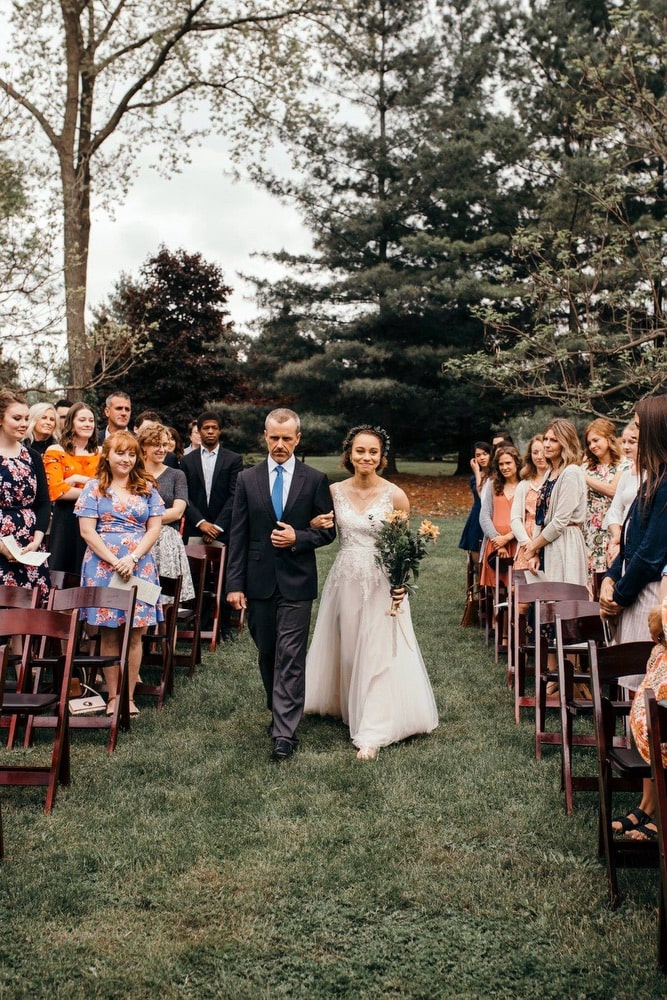
Scott Wichman, Tori’s former track coach and biggest cheerleader, walking her down the aisle at her wedding
VIE: Your honesty and vulnerability are on display throughout the book. This allows the reader into a world often shrouded in secrecy. Was it difficult to expose the personal and raw details of your childhood?
Tori: There were times when writing the book was difficult, and I had to take a break or rest from thinking about the hardship and abuse. But in retrospect, I know it could have been a lot harder. Overall, I felt like God carried me through it. I think that’s because He wanted the story to be shared.
VIE: Have you had any feedback, good or bad, from former caseworkers or advocates?
Tori: The caseworkers who hurt me and aren’t proud of me do not address me.
I’ve found a lot of peace in the scripture John 15:18 as my life has become more public. It says, “If the world hates you, keep in mind that it hated me first.”
But there are many more people who were a part of my case who have been encouraging and uplifting. They said they’ve even bought my book for their friends and family because they want them to understand what the system is like and how they can help kids coming from hard places.
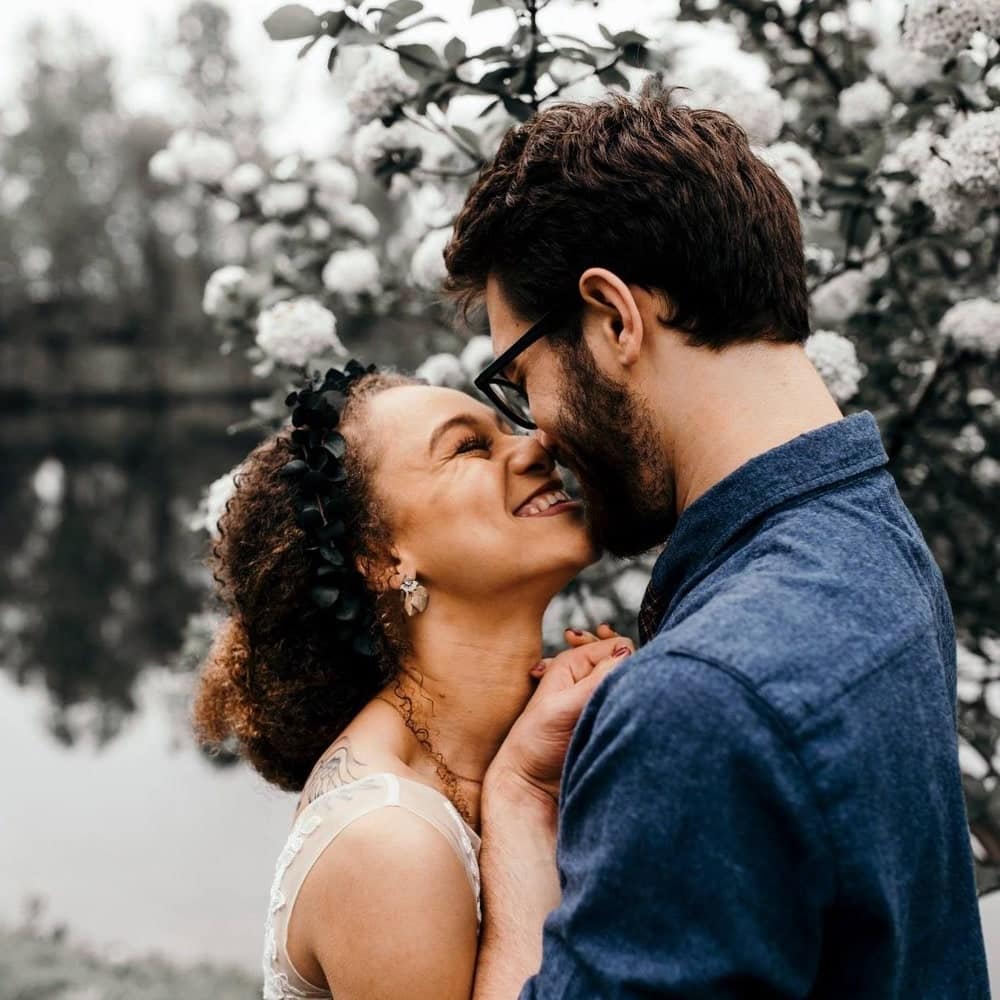
Tori and her husband, Jacob
VIE: You touch on many faults in the foster care system, first from your own experience as a child trying to navigate and comply with the rules and regulations of the state and then as an adult and mother. If you were asked to identify immediate changes that should be made to the system, what would that look like?
Tori: A great ordeal in the foster care system is that caseworkers are overworked and underpaid. They carry so much weight and sacrifice so much emotionally for their work. And they are the main point of contact and have so much responsibility over a child’s case. Like any of us, when we are overwhelmed with decision-making and lacking support, we fail to make the best decisions. And children deserve adults in their lives who make the best decisions for them. The system isn’t setting caseworkers up for success. Therefore, children are even more likely to fall through the cracks of the system.

Tori was crowned Mrs. Universe in 2021.
VIE: You clearly and honestly discuss your trauma as a child. It is hard not to tear up as you describe the abusive and obvious psychological trauma inflicted on children while in the care of those claiming to be a safe harbor and a respite from harm. (I understand there are many excellent foster care parents and social workers.) Do you have any suggestions for vetting and monitoring the homes where children are sent?
Tori: As an adult and foster parent, I have seen more behind the veil of foster care. I sense that proper vetting is not being done for foster parents because there is such a great need. There are counties and states where children are sleeping in human services offices or hotel rooms, which is a dangerous and vulnerable situation that can easily result in human trafficking. There are many hoops you have to jump through to become a foster parent, and it is very difficult; however, I feel some agencies feel like they can’t be picky because they are so desperate to get kids into homes.
VIE: How important was the mental health care you received while in foster care?
Tori: It was mandated for me to be in therapy because of the abuse I suffered. I am so thankful for those early years of treatment. I truly feel like I got a head start before therapy became cool. I credit therapy and journaling for my ability to process my emotions and tragic events now.
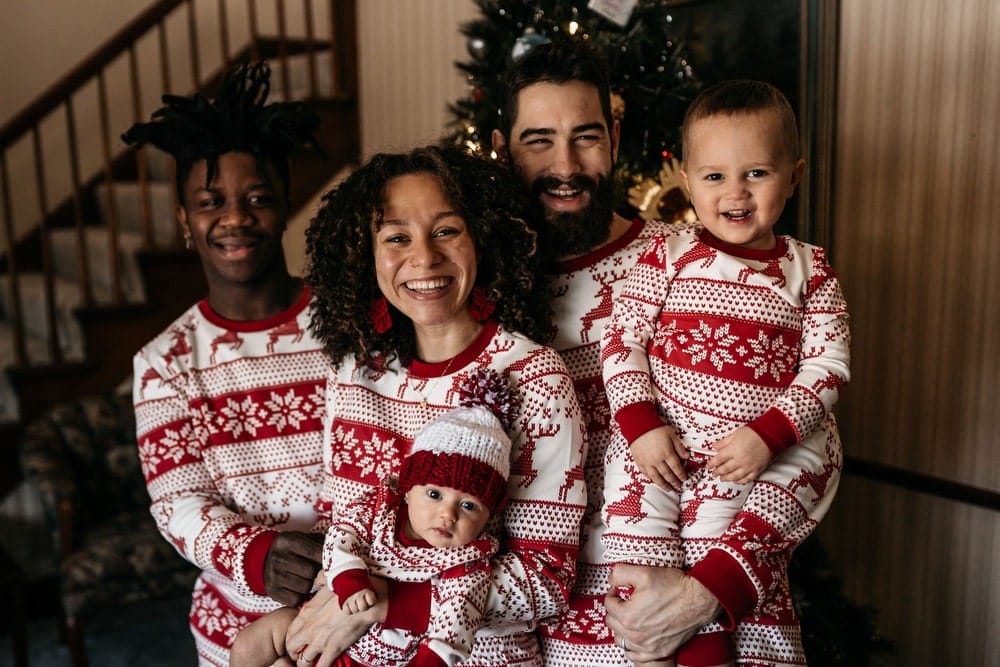
Tori and Jacob with their children Sar, Leyonder, and Ezzeri
VIE: You were fortunate to have people in your life who introduced you to God, took you to church, and helped build your faith. Can you share how your relationship with God got you to where you are today?
Tori: My relationship with God has been a journey of understanding more about who He is and who He says I am and walking in that truth. I call God “Abba” because it is more intimate than “Father”—more like “Daddy.” God has filled this space in my life that was so empty. I think faith is so complex and hard to explain. But I’ve known God for a long time; I just didn’t want to surrender to Him. Then when I was seventeen, I really wanted to live a life that glorified God. I realized He gave so much and loved me so much, and I wanted to extend that kind of love to others, but it was not until this past year that I understood that love is also for me. God also really, really, really does love me. I used to say it, but in the past year, I have been able to understand that I really am loved.
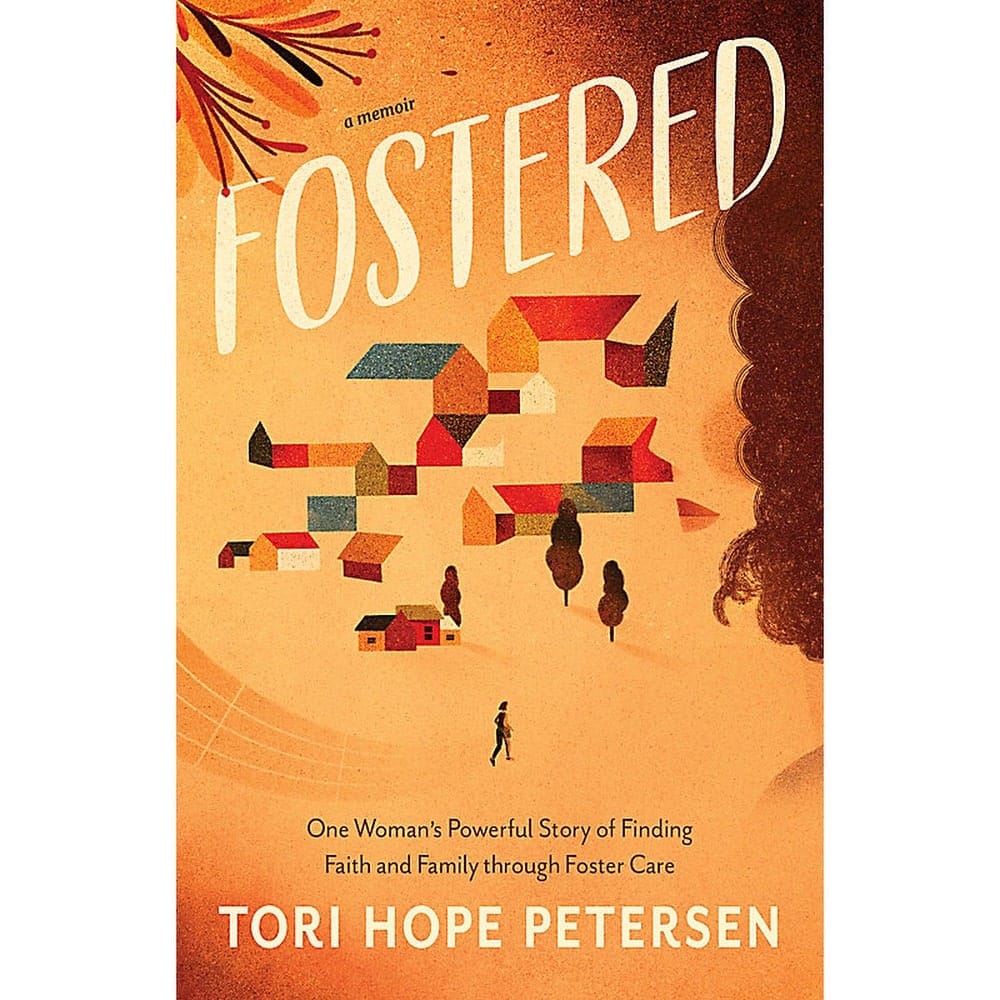
Tori shares her story in her memoir, Fostered: One Woman’s Powerful Story of Finding Faith and Family through Foster Care.
VIE: You talk a lot about people who have shown you kindness. Can you shed some light on the importance of offering these small acts of love that leave a lasting impact?
Tori: When I look back at my story, so many moments of people’s kindness and love formed who I am today. A lot of people like to chalk it up to what my track coach did for me—and that is good, and he did have a great impact on my life when he believed in me and became my forever father—but there are so many things that have made me who I am. Our little acts of kindness can be the pieces people choose to remember or hold onto during hard times. Our acts of kindness can change the trajectory of someone’s life and sometimes even save it.
VIE: Thank you, Tori!
— V —
To learn more about Tori, follow her on Instagram @torihopepetersen and online at ToriHopePetersen.com. Fostered: One Woman’s Powerful Story of Finding Faith and Family through Foster Care is available from Amazon and other major booksellers.
Share This Story!
KEEP UP WITH THE LATEST STORIES FROM VIE


















































































































































